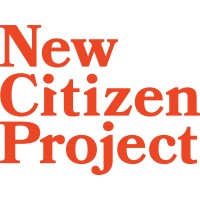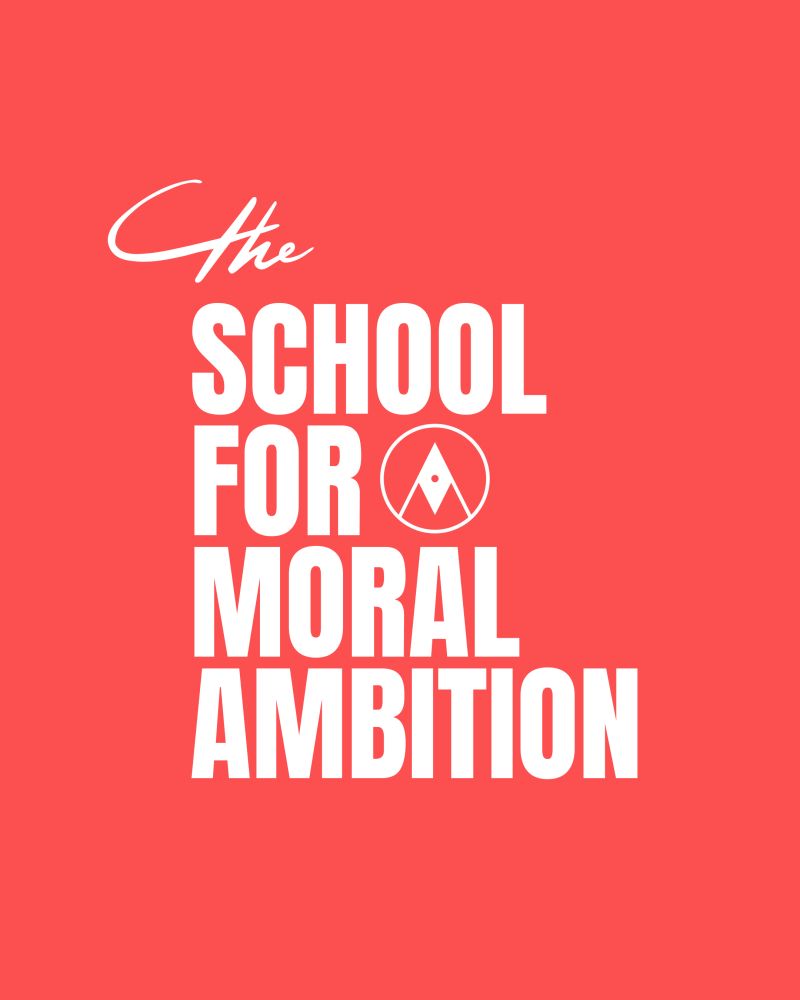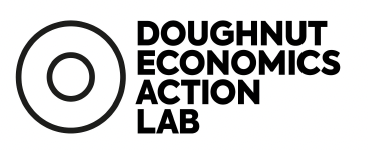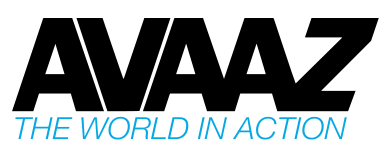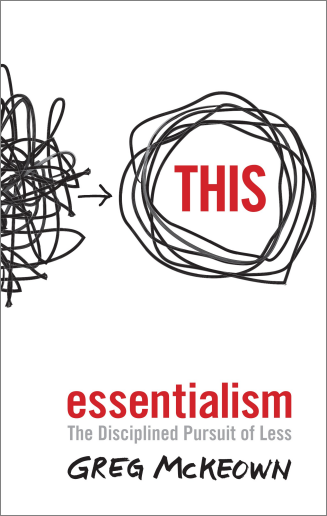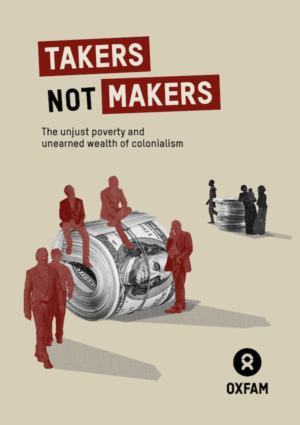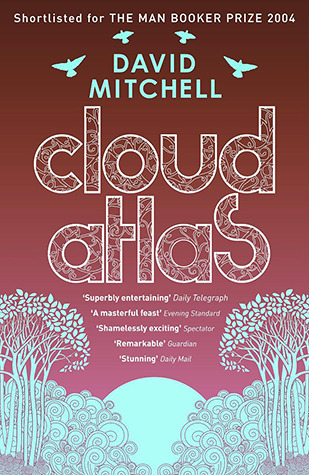How can we quickly grow widespread belief in our ability to change course?
…it’s not that people need to be convinced the system isn’t working; it’s that they need to be inspired to change it…
Kasper Benjamin Reimer Bjørkskov, LinkedIn comment (July 1, 2025)1
Page sections:
- We can utilise and multiply the power of supporting voices
- We can draw inspiration from momentum-building changemakers
- We can learn and gain confidence from wise words
1. We can utilise and multiply the power of supporting voices
As I explained on the Challenges page:
- our primary challenge is to change our own behaviour
- change always meets resistance
So, before I showcase my personal selection of inspiring changemakers and wise words, I will shed light on:
- why supporting voices are essential levers for overcoming resistance to societal change
- why we need more diverse voices
- how other change advocates are helpfully showcasing supporting voices
Supporting voices strengthen change advocates’ prospects
When mounting crises lead to calls for societal change, the four factors below significantly impact the likelihood of change. As you’ll see, supporting voices (for whatever change is being advocated) can play a huge role.
| Change factor | Strength lies with… | Supporting voices increase likelihood of change by… |
|---|---|---|
| Position | advocating the status quo (not change) | popularising the change being advocated, so it becomes ‘the norm’ |
| Societal familiarity | being familiar to the masses (not unfamililar or ‘elite’ or ‘foreign’) | familiarising the change movement to their group (or followers) |
| Group size | large groups or organisations (not small ones) | connecting their group (or followers) to the change movement |
| Messaging style | widely promoting simple messages (not to narrowly promoting complex messages) | widely promoting simple and memorable messages and generating positive associations |
In summary, supporting voices increase the likelihood of change by popularising the call for change, familiarising the change movement with new audiences, coalescing change-supporting groups, and widely delivering memorable messaging.
This is why it is so helpful for the thousands of individuals and small organisations advocating for societal change to draw on diverse, but interweaved supporting voices.
The larger the audience, the greater the need for a diversity of supporting voices
As I explained on the Plan page, the audience needed to trigger a course change isn’t everyone, but it is still an incredibly large and diverse group of 1–2 billion.
However, few of us have been engaged in global conversations, and the conversations that have occurred have been too siloed (despite, in many cases, tireless efforts to reach wider audiences).
To engage an audience big enough to trigger a course change, vast numbers of changemakers need to advocate through different social, cultural, political, religious, and creative lenses, in different languages and tones, and through different mediums and social settings.
Of course, thousands of changemakers in communities across the globe are already doing this. But Team Humanity needs exponentially more (and more diverse) supporting voices.
If we are to garner a tipping point of engagement, then we need more sports stars, musicians, actors, influencers, politicians, and other community heroes to step up, speak up, and advocate collaboratively.
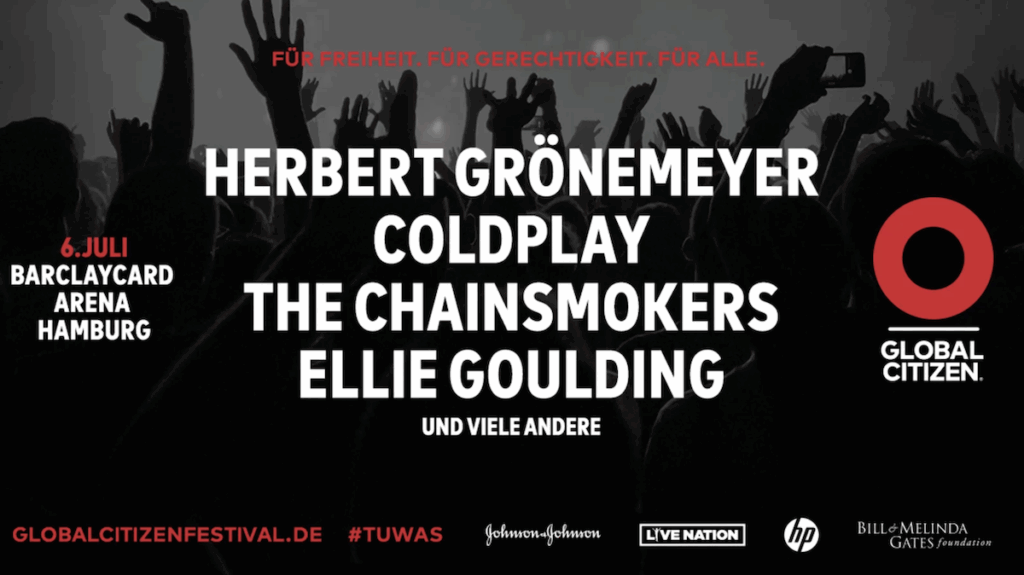
Three examples of change advocates showcasing supporting voices
The first example is from the Australian economist, Katherine Trebeck, who co-founded the Wellbeing Economy Alliance and today performs numerous audience-growing roles as an ‘advocate for a more humane economy’.
One of those roles is as writer-at-large for the Edinburgh Futures Institute (EFI).
In each of her opinion pieces for the EFI, which Katherine diligently promotes to her 7500 LinkedIn followers, she provides links to the key ‘voices’ who have informed and developed her views.
These links are provided informally, not as academic citations that could be off-putting to the broader, non-academic audience she wishes to attract.
To illustrate, below is a 10-link paragraph from an article about why a wellbeing economy is a compassionate economy.
[There are] swathes of evidence that people’s values are already largely aligned with what humanity and the planet need (see here for a collection of research and here). Instead, it is the economy that is misaligned. Poll after poll of public opinion indicates that people, around the world, want the post-Covid world to be one where health and the planet are elevated above goals such as economic growth. These polls are underscored by rich participatory deliberations such as Citizens Assemblies. And these articulations of what humans want and most value are, in turn, reinforced by the findings of psychologists, sociologists, neuroscientists, and scholars in development and human need.
Katherine Trebeck, Edinburgh Futures Institute2
You can find Katherine Trebeck on LinkedIn
The second example is from the outstanding EY report quoted on the homepage and elsewhere. Like this manifesto, the report is consistently punctuated with references to supporting voices.
As you read, you will note references and nods to seminal work, including Doughnut Economics, the planetary boundaries framework, the Wellbeing Economy Alliance, Earth4All, Forum for the Future, and the Capital Institute, among others.
A new economy, New Economy Unit, EY (May 2024)
Note: The report is showcased in the wise words section, below.
And a third example is the thousands of LinkedIn posts by social change experts who, like the three influencers I showcase in the changemaker section directly below, regularly share and promote the insights and successes of others.
2. We can draw inspiration from momentum-building changemakers
Doomsaying news that spreads fear and suppresses hope plays into the hands of those wishing to retain, and extend, power over populations — even democratic ones.
Promising efficient, strong-armed rule tempered by popular accountability, elected strongmen attract mass support in societies traumatized by turmoil, dysfunction and injustice…
Popular Dictatorships: Crises, Mass Opinion, and the Rise of Electoral Authoritarianism, Aleksandar Matovski (2021)
However, bright spots are all around us.
Every day, countless individuals and organisations productively toil to promote and achieve positive social change.
And by showcasing a selection of changemakers who have inspired me, my goal is to illustrate the rich abundance and value of such voices .
My selection of changemakers is grouped into:
- helpful LinkedIn voices
- impact-growing authors
- momentum-building organisations
I hope my selections remind you of the inspiring changemakers you know, and encourage you to promote them within your networks.
Helpful LinkedIn voices
LinkedIn has a staggering number of members: more than 1 billion.
Among them are thousands of inspiring voices helping others to learn about sustainability, and how to increase positive impacts personally and vocationally.
Three members — Elena Doms, Katherine Hayhoe, and Dan Sherrard-Smith — have stood out to me as impactful, hardworking changemakers.
Like so many who have earned large followings, they share helpful information, connect kindred souls, achieve positive outcomes through their own work, and continually grow sustainability audiences. Combined, they are today communicating with around 350,000 unique followers.
Elena Doms
Elena is a soil restorer, green entrepreneur, sustainability speaker, artist, and mother. I have never met Elena or her family, friends, or colleagues, but I feel like I have. This is because Elena communicates in a particularly authentic and transparent way that inspires me to continue with my own sustainability journey.
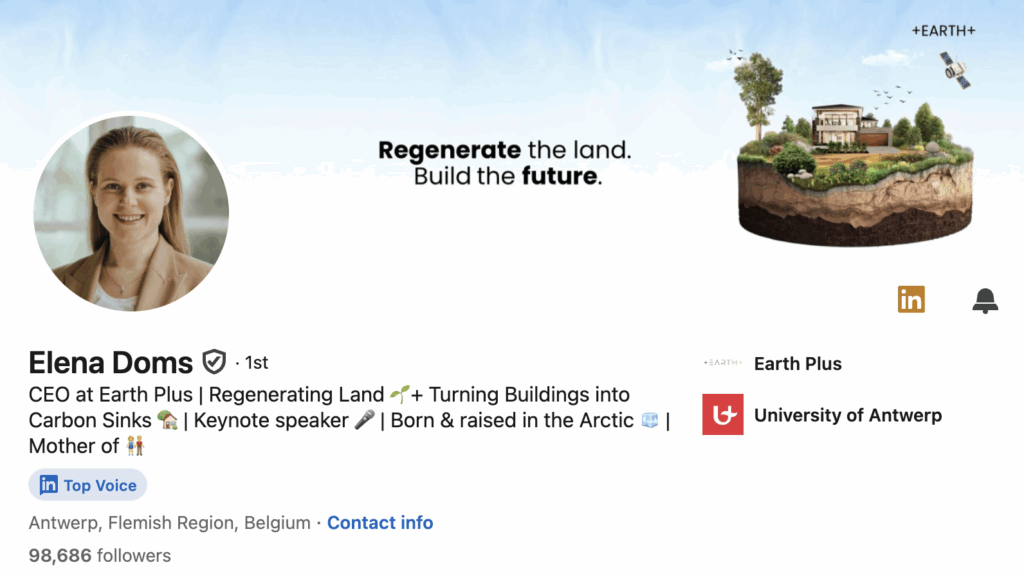
You can find Elena Doms on LinkedIn
Katherine Hayhoe
Katherine is an atmospheric scientist who works ‘to bridge the gap between climate science and on-the-ground planning’. A proud person of faith, Katherine is the author of Saving Us: A Climate Scientist’s Case for Hope and Healing in a Divided World (2021) and is a passionate climate communicator.
I chose what to study precisely because of my faith, because climate change disproportionately affects the poor and vulnerable, those already most at risk today. To me, caring about and acting on climate was a way to live out my calling to love others as we’ve been loved ourselves by God.
Katherine Hayhoe, “I’m a Climate Scientist Who Believes in God. Hear Me Out.”, New York Times (October 31, 2019)3
Katherine’s TED talk has more than 4 million views, and her weekly newsletter, Talking Climate, has 115,000 subscribers.
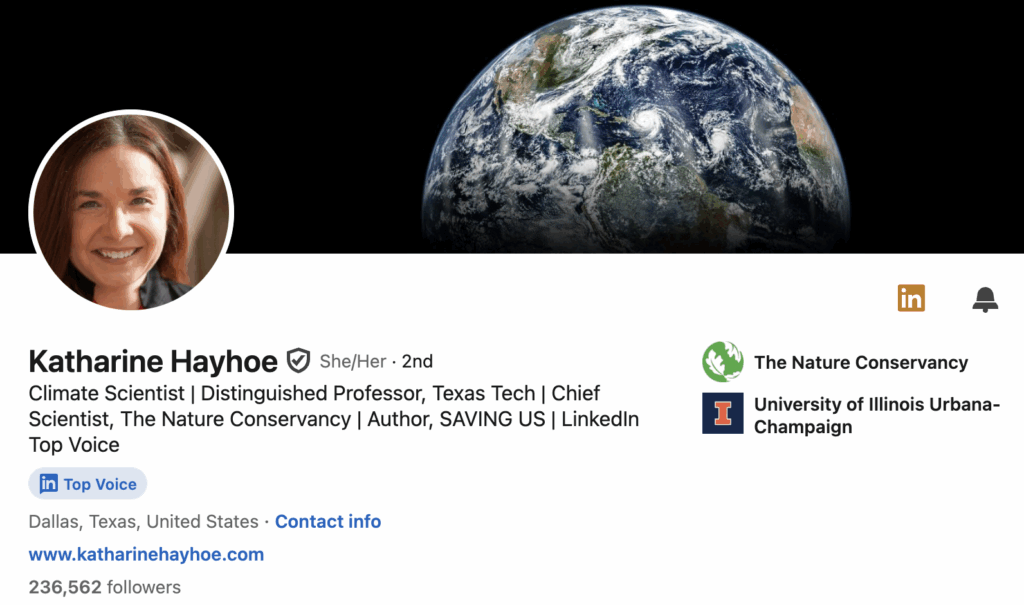
You can find Katherine Hayhoe on LinkedIn
Dan Sherrard-Smith
Like Elena, Dan is a green entrepreneur.
Having generated tremendous outcomes through facilitating ethical banking (his MotherTree company has facilitated moving more than ‘1£1bn into the Green Economy’), he is now amplifying his impact by coaching other impact entrepreneurs to raise their profiles LinkedIn.
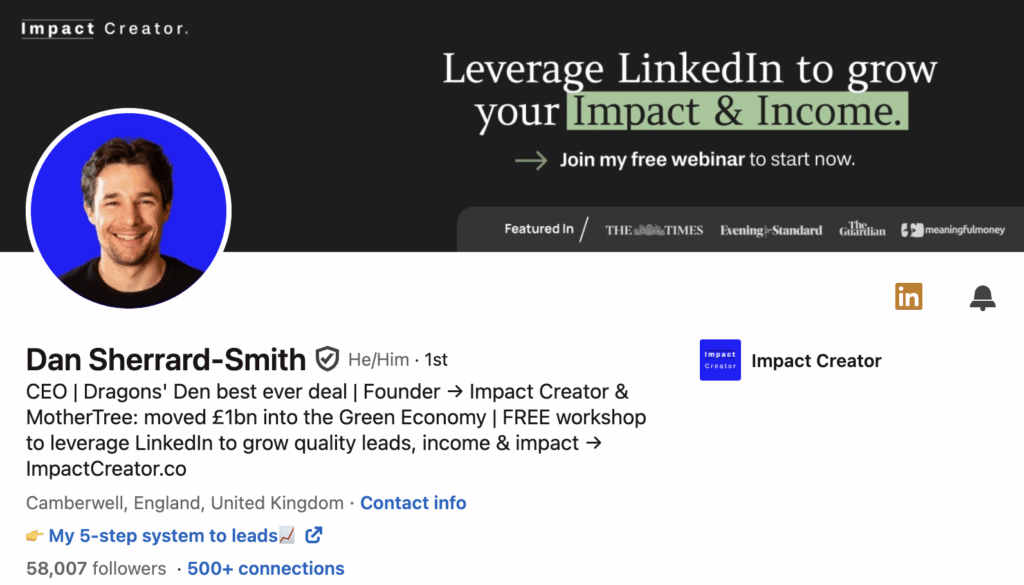
You can find Dan Sherrard-Smith on LinkedIn
Impact-growing authors
Jon Alexander, Rutger Bregman, and Kate Raworth are each the author of an excellent book that illuminates humanity’s capability for betterment. But here I am showcasing the inspiration they have provided to me by creating organisations that expand the impact of their knowledge and ideas. (That’s what I’m also attempting to achieve by seeking to establish the Same Page Foundation.)
Jon Alexander
Jon is the author (with Ariane Conrad) of Citizens: Why the key to fixing everything is all of us (2022), and the founder of the New Citizen Project.
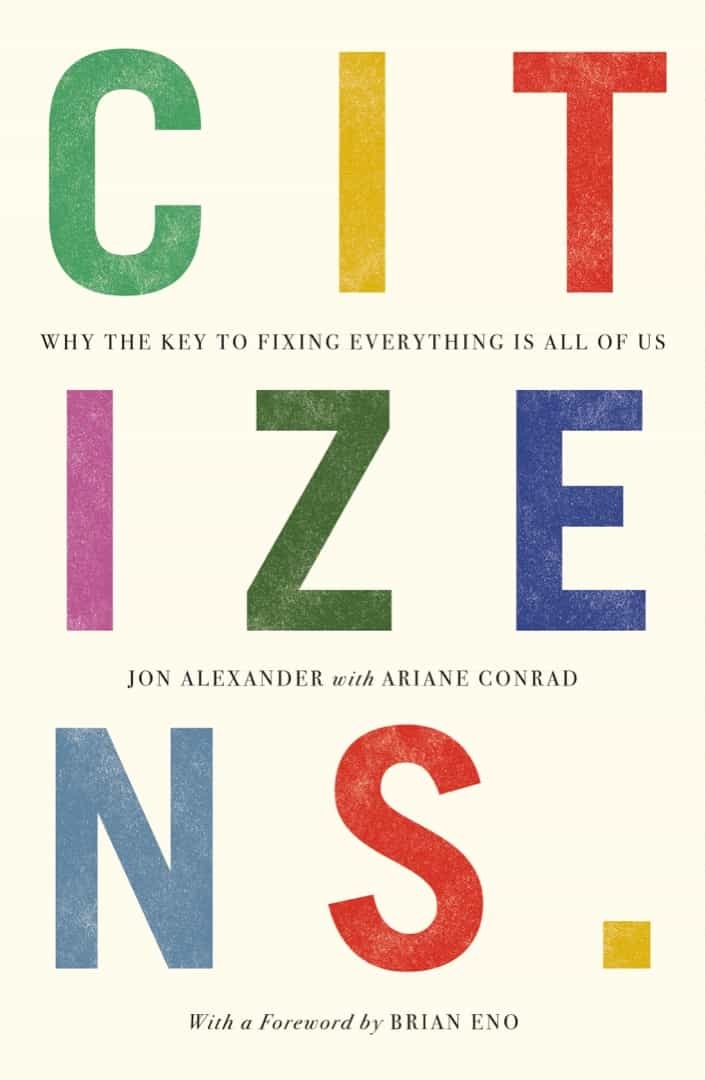
Here’s a quote from Citizens.
As the Citizen story takes shape, we are finally realising that there is a deep fallacy here, one that is a big part of the problem. We are not external to nature, Consumers of it. We are nature — participants in it, Citizens of it. Indigenous leaders believe that this difference in mindset is the difference between living a harmonious and sustainable life on the planet, versus our current tragic trajectory.
And here’s an excerpt (my bold) from the New Citizen Project website.
When we think of ourselves as citizens rather than consumers, we’re more likely to participate, volunteer and come together to make our society stronger. That’s why our mission at New Citizen Project is to catalyse a shift to a more participatory, citizen-led society. … [We believe] that, given the right opportunity, people can and will shape the things that matter to them for the better.4
As Team Humanity, I believe we can manifest ‘the right opportunity’.
You can find Jon Alexander and the New Citizen Project on LinkedIn
Rutger Bregman
Rutger is the author of Moral Ambition: Stop Wasting Your Talent and Start Making a Difference (2025), Humankind: A Hopeful History (2020), and Utopia for Realists (2014), and co-founder of The School for Moral Ambition.
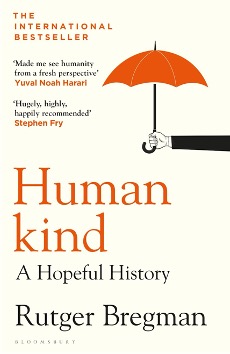
Here’s a quote from Humankind.
There is a persistent myth that by their very nature humans are selfish, aggressive and quick to panic. It’s what Dutch biologist Frans de Waal likes to call veneer theory: the notion that civilization is nothing more than a thin veneer that will crack at the merest provocation. In actuality, the opposite is true. It’s when crisis hits — when the bombs fall or the flood waters rise —that we humans become our best selves.
In this time of ‘polycrisis’, belief in human kindness is essential.
I share Rutger’s belief, which his book provides plenty of evidence to support, and kindness is wisely embedded as one of the seven principles5 of The School for Moral Ambition.
- Action — We think awareness is overrated
- Impact — We want to make a big difference
- Radical Compassion — We work to expand our moral circle
- Open-Mindedness — We cultivate a curious mindset
- Kindness — We believe in the good in people
- Enthusiasm — We want to live full, rich, well-rounded lives
- Perseverance — We are determined not to give up
The organisation is a proudly global, multi-lingual response to the need for an army of ambitious minds to be employed on addressing our greatest societal challenges. As their website declares: We want to help as many people as possible take the step towards a job with a positive impact.6
As Team Humanity, I believe we can rapidly stimulate an explosion of ‘positive impact’ jobs.
You can find Rutger Bregman and The School for Moral Ambition on LinkedIn
Kate Raworth
Kate is an economist, the author of Doughnut Economics (2017), and the founder of the Doughnut Economics Action Lab (DEAL).
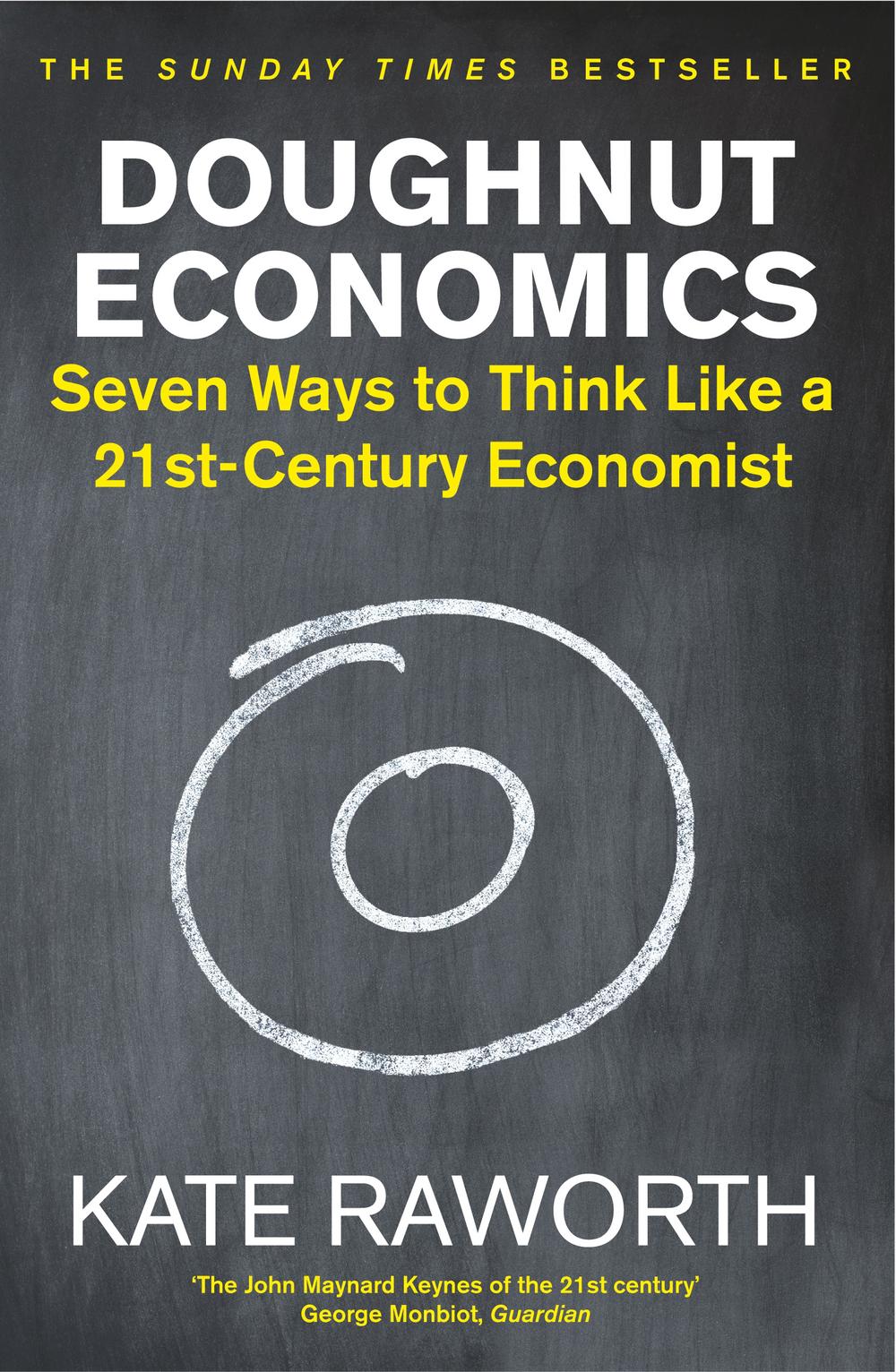
Kate’s ‘doughnut’ is a simple, memorable graphic that represents a ‘safe and just space’ for prosperous economic activity between two essential boundaries.
- The social foundation (the inner circle) ‘below which lies critical human deprivation’
- The ecological ceiling (the outer circle) ‘beyond which lies critical planetary degradation’
In other words, human activity that ensures ‘no one is left falling short on life’s essentials’ and that ‘humanity does not collectively overshoot planetary boundaries’.
It sounds like common sense because it is.
Here’s a quote from Doughnut Economics.
Today we have economies that need to grow, whether or not they make us thrive; what we need are economies that make us thrive, whether or not they grow.
And here’s an excerpt (my bold) from the DEAL website.
[We are] part of the emerging global movement of new economic thinking and doing. Our aim is to help create 21st century economies that are regenerative and distributive by design, so that they can meet the needs of all people within the means of the living planet.7
As Team Humanity, I believe we can swiftly mandate and manifest such economies.
You can find Kate Raworth and the Doughnut Economics Action Lab on LinkedIn
Momentum-building organisations
Given the Same Page Foundation intends to become a global organisation facilitating mass advocacy for a fair and healthy economic system, it makes sense that I have chosen to showcase the following three global organisations.
- Avaaz for their mass advocacy of worthy causes
- Wellbeing Economy Alliance (WEAll) for their multinational collaboration to bring about a fair and healthy economic system
- Wikimedia Foundation for their global promotion of clear, accessible, well-translated information
I gratefully applaud the contributions of these organisations, and look forward to exploring partnership opportunities with all three.
Avaaz
Here’s an excerpt from the Avaaz website.
Avaaz — meaning ‘voice’ in several European, Middle Eastern and Asian languages — launched in 2007 with a simple democratic mission: organise citizens of all nations to close the gap between the world we have and the world most people everywhere want.8
Why does Avaaz inspire me?
Avaaz is all about empowering communities to advocate for social change through their well-focussed, well-timed petitions. As they say, ‘In the life of an issue or a cause, a moment sometimes arises when a decision must be made, and a massive, public outcry can suddenly make all the difference.’
Through Avaaz, I have been adding my voice to campaigns since 2013 and my voice (as at the start of 2025) is one of 69 million!
Avaaz exemplifies the kind of Internet-empowered community engagement that the Same Page Foundation aims to facilitate.
You can find Avaaz on LinkedIn
Wellbeing Economy Alliance
Here’s an excerpt from the WEAll website.
The Wellbeing Economy Alliance (WEAll) is the leading collaboration of organisations, alliances, movements and individuals working towards a Wellbeing Economy, delivering human and ecological wellbeing.9
Why does the Wellbeing Economy Alliance inspire me?
WEAll is dedicated to global collaboration, which is essential for developing a coherent alternative to the status quo.
WEAll is (as at September 29, 2025) a collaboration of more than 500 member organisations, 6 national governments (as part of their Wellbeing Economy Governments partnership), 88 ambassadors (including the influential voices of Kate Raworth, Katherine Trebeck, Sandrine Dixson-Declève, and Bill McKibbon), more than 150 academics, and 17 local hubs.
WEAll’s focus on the global economic system, commitment to collaboration, global network, messages of compassion and hope, and its innovative and industrious hub in my home of Aotearoa New Zealand are all inspirations.
You can find WEAll on LinkedIn
Wikimedia Foundation
Here’s an excerpt from the Wikimedia Foundation website.
The nonprofit Wikimedia Foundation provides the essential infrastructure for free knowledge. We host Wikipedia, the free online encyclopedia, created, edited, and verified by volunteers around the world, as well as many other vital community projects.10
Why does the Wikimedia Foundation inspire me?
The Wikimedia Foundation promotes the clarity, transparency, accountability, and accessibility of valuable information, just as the Same Page Foundation intends to do.
Today, no single resource exemplifies such information better than Wikipedia, Wikimedia Foundation’s free, million-page, 300-language encyclopaedia, which is collaboratively edited by more than 250,000 volunteers from around the world.
Accessing ‘free and open knowledge’ is essential for fulfilling our potential. ‘Open’ in this instance means both accessible and transparent, and the transparency guaranteed on Wikipedia through editorial version control has become priceless in a world of fake news, fake images, fake entities, and serve-the-wealthiest-funder media and politics.
You can find the Wikimedia Foundation on LinkedIn
3. We can learn and gain confidence from wise words
Now, to illustrate that insightful, confidence-giving wisdom is all around us, here is my personal selection of:
- helpful books
- helpful reports or papers
- insightful voices calling for a new economic system
- insightful voices highlighting the wealth of ‘life’
- helpful creative works
I hope these wise words provide you with valuable insights, confidence, and inspiration. I also hope my list prompts you to think about your own ‘top threes’. If a Team Humanity book club existed, which books would you recommend? Or if we curated Team Humanity quotations, which wise words would you nominate?
Helpful books
Each of these books is immensely insightful, well researched, and well written.
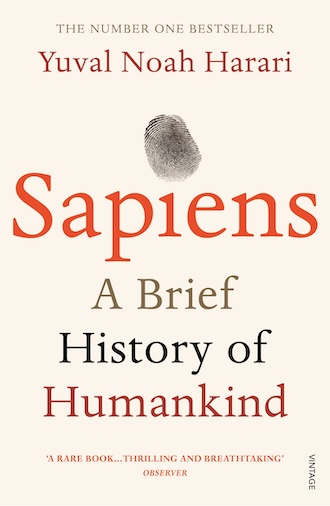
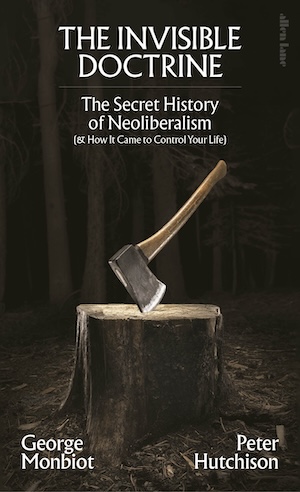
Sapiens describes who we are and how we have come to function and, thus, our strengths, weaknesses, and capabilities.
The Invisible Doctrine summarises the history of the upstream barrier to our collective wellbeing, the success story (or ‘doctrine’) of neoliberalism.
Essentialism teaches us to wisely and gainfully seek ‘less, but better’, which is every person’s simplest antidote to the paralysing busyness of pursuing ‘more’.
Sapiens
Sapiens: A Brief History of Humankind (2014) by Yuval Noah Harari
The better we understand ourselves, Homo sapiens, the better we will be equipped to positively change the course of our civilisation. Know thyself!
At 500 pages, Sapiens is not a short book, but given its subject is the history of humankind, it is tremendously concise. It is also tremendously accessible, and has sold a staggering 25 million copies.
In simple, engaging prose, Harari explains how our species has evolved through the Cognitive, Agricultural, and Scientific revolutions of the past 70,000 years to become the social, story-following, all-powerful, resource-consuming, ecosystem-destroying, and increasingly anxious species we are today.
We are more powerful than ever before, but we have very little idea what to do with all that power. Worse still, humans seem to be more irresponsible than ever. … We are consequently wreaking havoc on our fellow animals and on the surrounding ecosystem, seeking little more than our own comfort and amusement, yet never finding satisfaction.
The most helpful knowledge I gained from Sapiens is the unmatched power and influence of stories, as I summarised on the Challenges page.
Harari’s words make sense of our unwise actions and support my long-held deduction that the ultimate leverage point for the societal change we need is the dominant global success story. It hasn’t always been ‘more’, and it doesn’t need to stay as ‘more’.
A decade on from the publication of Sapiens, today’s version of the ‘more’ success story has helpfully been labelled and illuminated as The Invisible Doctrine.
The Invisible Doctrine
The Invisible Doctrine: The Secret History of Neoliberalism (& How It Came to Control Your Life) (2024) by George Monbiot and Peter Hutchison
If you have time to read only one book this year, I urge you to read this one.
Published a year ago and now released as a documentary film, this exceptionally concise book reveals the history, nature, workings, and phenomenal power of neoliberalism.
As I explained on the Challenges page, neoliberalism is the dominant global success story driving our species to towards ecological collapse.
To understand how to replace this story, we first need to understand what it is, how it controls our lives, and why it has been able to maintain its hold over global society for more than 50 years.
We live under an ideology that preys on every aspect of our lives… So pervasive has it become that, for most people, it has no name. It seems unavoidable, like a natural law. But trace it back to its roots, and we discover that it is neither inevitable nor immutable. It was conceived, propagated, and then concealed by the powerful few. Our task is to bring it into the light — and to build a new system that is worth fighting for.
You can find Peter Hutchison on LinkedIn
Essentialism
Essentialism: The Disciplined Pursuit of Less (2014) by Greg McKeown
The discipline of essentialism is ‘about doing less, but better, in every area of our lives’.
While Essentialism is not an economics or sustainability book, ‘less, but better’ is a wonderfully simple and helpful mantra for transitioning to a sustainable economy.
As I illustrated on the Approach the page, cutting out harmful economic activity not only produces better societal outcomes, it also opens doors to prosperity because we remove so many ‘limits to growth’ when the only things we’re developing and growing are good (or harmless) — just like nature. That’s a 2–0 win over the undisciplined pursuit of more!
Essentialism is about productivity, impact, and wellbeing, by simplifying and prioritising our lives for efficient, joyful success, not for inefficient busyness and unnecessary consumption.
McKeown helpfully reminds us that: almost everything in life is a trade-off; that most matters we encounter are trivial; and that discernment, choice-making, and true prioritisation (pri- means one, not many!) are essential disciplines for living fulfilled, impactful lives.
… the pursuit of less allows us to regain control of our own choices so we can channel our time, energy and effort into making the highest possible contribution toward the goals and activities that matter. … [It’s] a movement whose time has come.
Living my own life in this manner — saying no to literally thousands of sparkly distractions to enable me to follow this calling — is a key reason this manifesto exists.
And I know ‘less, but better’ already appeals to so many of us, because Essentialism has sold more than two million copies and Greg has diligently attracted an audience of more than half a million followers on LinkedIn.
You can find Greg McKeown on LinkedIn
Helpful reports or papers
As I explained on the Challenges page, the many harms caused by our ‘take-make-use-lose’ global economic system, and the resulting need to make our unsustainable way of living sustainable, are known facts buried in a daily avalanche of new information.
…a wealth of information creates a poverty of attention…
Herbert A Simon, Designing Organizations for an Information-Rich World (1971)
We can’t consume the information we have created so, to become informed, we must select and showcase. Of all the thousands of sustainability-related reports, papers, and articles published during the past 50 years, here are three watershed documents (published in 2023, 2024, and 2025, respectively) that I think merit showcasing.
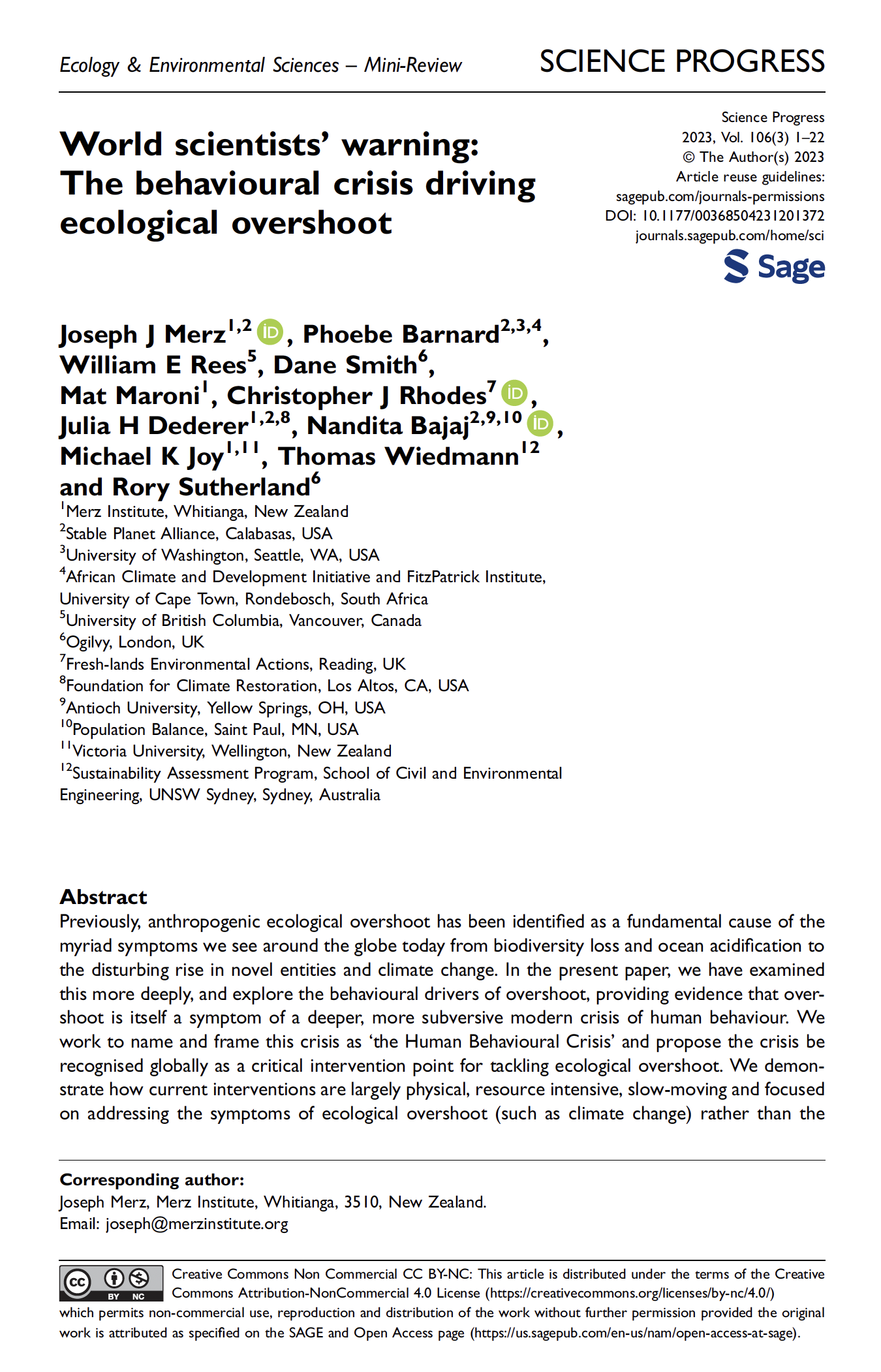
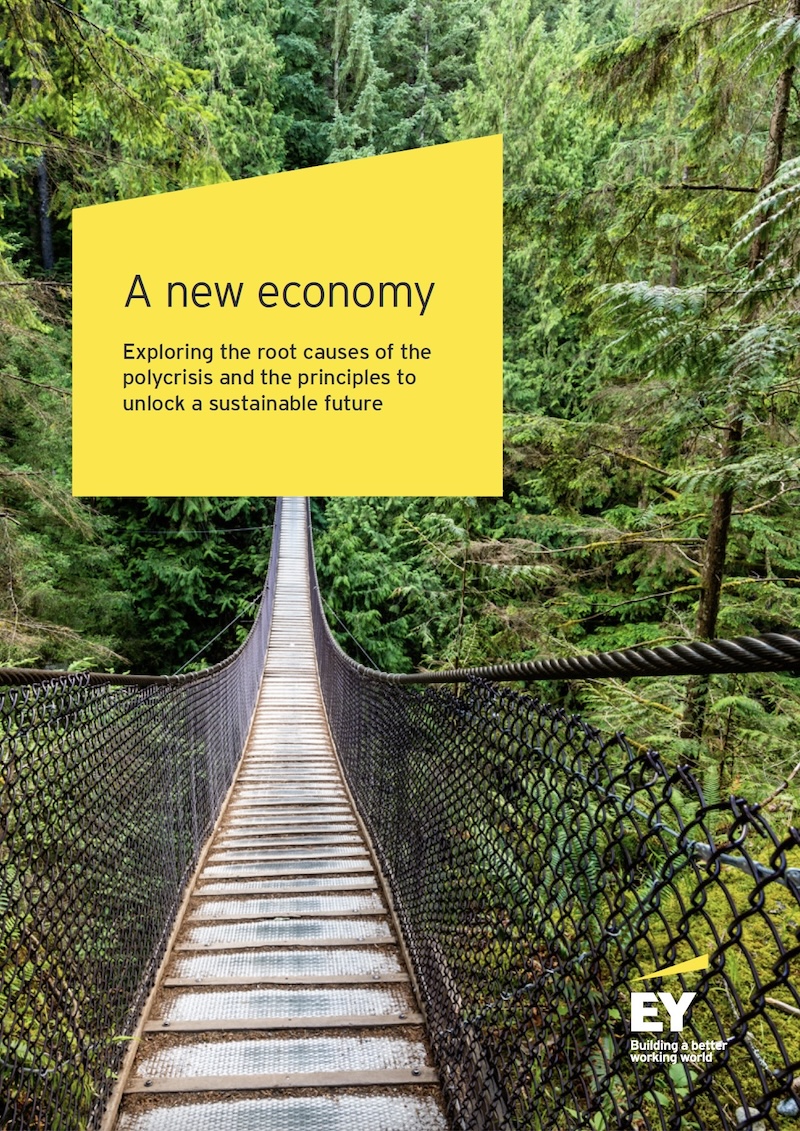
Click image to download official PDF
Each focuses much-needed light on the interlinked causes of our current crises, helpfully explaining why we are in the mess we are in, which, of course, is essential knowledge for navigating our way out of it. And each deserves exponentially more attention than it has received.
The behavioural crisis driving ecological overshoot
World scientists’ warning: The behavioural crisis driving ecological overshoot, Merz JJ, Barnard P, Rees WE, et al (Science Progress, September 20, 2023)
In my experience, academic papers are typically not clear, concise, or compelling. Helpfully, this paper is all three. It is also helpfully accessible (no Internet pay wall) and extra-widely collaborative.
The paper presents evidence that the mounting crisis of ecological overshoot (that is, transgressing planetary boundaries) ‘is itself a symptom of a deeper, more subversive modern crisis of human behaviour’.
The authors do more than point out that all our crises are ultimately caused by human behaviour; they eloquently offer explanations for why we act (maladaptively) as — collectively — we currently do.
…[human impulses lead us to] procrastinate rather than act whenever action does not have an immediate survival benefit particularly for ourselves, close relatives and our home territories (humans are innate temporal, social and spatial discounters) [and] many of our continuing environmental and societal challenges arise from these hijacked impulses.
And the consequences of impulses hijacked ‘in an era saturated by brands and marketing’?
…consumption [becomes] less reflective of our physical needs and more reflective of our runaway psychology. For example, we may buy to boost our mood, reinforce our identity or elevate our social status above others. … Simply, we are trapped in a system built to encourage growth and appetites that will end us.
Authors: Joseph J Merz, Phoebe Barnard, William E Rees, Dane Smith, Mat Maroni, Christopher J Rhodes, Julia H Dederer, Nandita Bajaj, Michael K Joy, Thomas Wiedmann, Rory Sutherland.
Download link: https://journals.sagepub.com/doi/10.1177/00368504231201372
Citation: Merz JJ, Barnard P, Rees WE, et al. World scientists’ warning: The behavioural crisis driving ecological overshoot. Science Progress. 2023;106(3). doi:10.1177/00368504231201372
You can find Joseph Merz on LinkedIn
A new economy
A new economy: Exploring the root causes of the polycrisis and the principles to unlock a sustainable future by EY’s New Economy Unit (May 28, 2024)
If you have time to read only one report this year, I urge you to read this one.
This 85-page report (backed up by 300 references) is the most helpful and important sustainability-related report I have read. In my view, it could set off economic transformation, but not while it remains lost in the information ocean.
The report’s importance stems from many factors, but here are three standouts.
Courage
While the report is authored by a small unit within the (very large) ‘EY Global Climate Change and Sustainability Services (CCaSS) practice’, it is EY branded, and EY sits at capitalism’s top table. As far as I am aware, this is first and only explicit call for transformation from the centre of the economic system. I don’t know what Matthew Bell (the global leader of the CCaSS) had to do to get this report approved, but I tip my hat to him, to fellow lead author Anastasia Roussou, and to every person involved with the production of this exceptionally bold report.
Collegiality
The report consistently acknowledges a host of players in the ‘new economy thinking and science’ space, including (in alphabetical order) Doughnut Economics, Earth4All, Economy for the Common Good, Wellbeing Economy Alliance, and the ZOE Institute for Future Fit Economies.
Clarity and candour
The report concisely:
- specifies six ‘interconnected system flaws’ driving today’s polycrisis economy: unsustainable growth, overconsumption, linear economy, financial capital myopia, short-termism, and siloed thinking
- lays out what’s at stake (‘Without urgent, large-scale transformation, it’s not a matter of if, but when, we’ll reach the point of ecological collapse.’)
- presents readers with a binary choice (polycrisis economy or new economy) and ends provocatively with the question ‘Which future do we wish to give to future generations?’
To further illustrate the report’s candour, here’s a pithy quote from the section on financial capital myopia.
The global economy continues to systematically overvalue short-term financial performance and returns while undervaluing stocks and flows of other vital capitals (e.g., natural, human, social). Leading us to systemically discount the value of anything that doesn’t have a price attached, we’ve arguably lost sight of what value really means.
This report needs and deserves a whole lot of attention.
Lead authors: Dr Matthew Bell, EY Global Climate Change and Sustainability Services Leader, Anastasia Roussou, EY Global New Economy Unit Head of Research.
You can find Matthew Bell and Anastasia Roussou on LinkedIn
Takers not makers
Takers not makers: The unjust poverty and unearned wealth of colonialism, Oxfam International (January 20, 2025)
In January, Oxfam International published a 97-page report, Takers not makers, that boldly states:
Most billionaire wealth is taken, not earned — 60% comes from either inheritance, cronyism and corruption or monopoly power. Our deeply unequal world has a long history of colonial domination which has largely benefited the richest people. … This system still extracts wealth from the Global South to the super-rich 1% in the Global North at a rate of US$30million an hour. This must be reversed [at a cost] borne by the richest people who benefit the most.
Bold words, indeed, but the authors have painstakingly researched their content. The report contains 30 pages of references (591 in total), and provides yet further transparency through a 24-page ‘Methodology Note’.
This rigour enables the report’s authors to confidently describe the crippling, destabilising unfairness of ‘the super-rich 1%’ who own ‘45% of all global wealth’, and conclude that ‘governments must: Radically reduce inequality…’
Oxfam is correct to conclude that societies must ‘end extreme wealth’, but our governments won’t act if ‘enough of us’ don’t first provide an emphatic mandate. Perhaps, ‘the Team Humanity Mandate’?
Lead authors: Anjela Taneja, Anthony Kamande, Chandreyi Guharay Gomez, Dana Abed, Max Lawson, Neelanjana Mukhia.
Download link: https://www.oxfam.org/en/research/takers-not-makers-unjust-poverty-and-unearned-wealth-colonialism
You can find Oxfam International on LinkedIn
Voices calling for a new economic system
For the past 50 years, the number of voices calling for transformation of the global economic system has grown exponentially.
In addition to the voices I have already quoted across this manifesto, here are three more ringing the alarm bells. As you’ll see, each comes with a vast network or following. Millions of us are already passionately seeking a change of course.
Earth4All
The dominant economic model is destabilising societies and the planet. It is time for change.11
Earth4All is a ‘collective of leading economic thinkers, scientists, and advocates, convened by The Club of Rome, the BI Norwegian Business School, the Potsdam Institute for Climate Impact Research and the Stockholm Resilience Centre.’
Earth4All’s multi-authored12 2022 book-length report, Earth for All: A Survival Guide for Humanity, is a follow-up to The Limits to Growth (quoted on the Challenges page, which was commissioned by The Club of Rome in 1972.
Seeking to connect common ideas across ‘transformational economics’, the Earth4All collective calls for ‘a major upgrade of our economic system to put the economy back in service to people’. To bring about this ‘upgrade’, Earth4All calls for ‘five extraordinary turnarounds’ (across poverty, inequality, empowerment, food, and energy) as the minimum requirements for putting our societies ‘on a pathway towards wellbeing for all within planetary boundaries’.
You can find Earth4All on LinkedIn
Capital Institute
Today’s greatest challenge is to address the root cause of our systemic crises – today’s dominant (neoliberal) economic paradigm and the financial system that fuels it and rules it — by transitioning to a more effective economic system design that is regenerative and therefore sustainable over the long term.13
According to its website, the Capital Institute is ‘a non-partisan think tank’ working with a ‘global ecosystem of 1500+ change makers [to] combine modern science, storytelling, and the knowledge of timeless wisdom traditions to illuminate the path from an extractive economy to an emerging regenerative economy that supports the long-term well-being of people, planet and business.’
You can find the Capital Institute on LinkedIn
Gary Stevenson
If you allow the rich to get really, really rich, to get really, really powerful, they outbid you for control of your politicians. They outbid you for control of your media, and they outbid you for access to your resources. And then what you get is politicians who don’t care about you, media who lies to you, and the inability to access resources, which includes things like food and housing. … That is why you need to care about inequality. That is why you need to care about the distribution of wealth. That is why you need to care about the distribution of power.14
Gary Stevenson (the ‘Inequality Economist’) is a British economist, former financial trader, and passionate public educator. Brought up in a working-class family, his goal is ‘to build the understanding amongst ordinary people [that] if you don’t demand reduction in wealth inequality, things will get worse. But if you achieve reductions in wealth inequality, things can get better.’15
I agree with Gary that we must quickly learn to identify and eradicate the business activities, laws, and legal mechanisms that permit extreme inequality. And we can, if we team up.
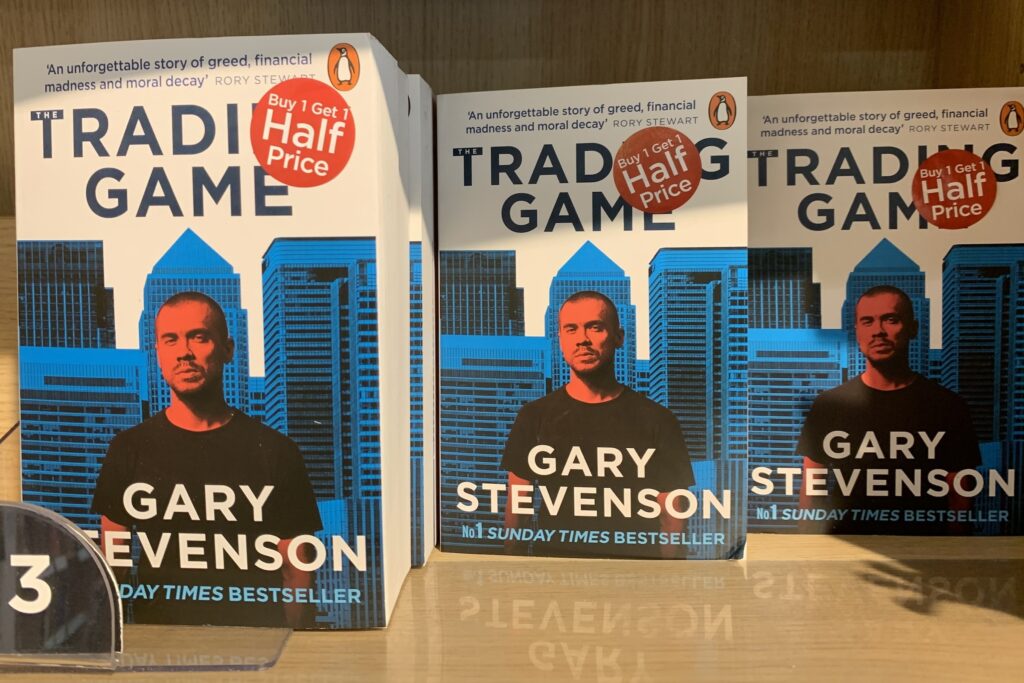
Voices highlighting the wealth of ‘life’
From three quotations about the dominant wealth construct that global society dangerously overvalues, to three quotations about the timeless sources of sustainable wealth that global society undervalues to its peril.
Joseph Campbell
The goal of life is to make your heartbeat match the beat of the universe, to match your nature with Nature.
Joseph Campbell, Reflections on the Art of Living (1991)
Joseph Campbell (1904–1987) was an American author and professor of literature who specialised in comparative mythology and religion. I was introduced to his writing when I took a paper on Western religion in 1989 and, subsequently, those 21 wise words became a North Star by which to set my own life goals. They said to me: You are a part of nature. Listen to your biology and your environment. Be wary of the distraction and encroachment of technology and all things artificial.
While Campbell’s words describe a goal seemingly incompatible with today’s way of living, I think the opposite is true.
Living in tune with nature — and being fed and delighted and sometimes tested by nature — are practical, sense-making antidotes to our dizzying, 24/7 servitude to commerce and technology.
Chief Seattle
This we know — the earth does not belong to man, man belongs to the earth. All things are connected like the blood that unites us all. Man did not weave the web of life, he is merely a strand in it. Whatever he does to the web, he does to himself.
Chief Seattle (c.1783–1866), a leader of the Duwamish and Suquamish peoples
A year or two later, I discovered this quotation attributed to the native American leader, Chief Seattle, whose people lived in the area today known as Washington State.
Having travelled widely as a child, I have always felt part of a global human family (‘the blood that unites us all’), but I think the words — ‘all things are connected’ are what initially triggered my deep interest in systems.
Combined with an innate curiosity, creativity, and love of logic, I found that seeking out connections — cause and effect, natural harmony, synergies — unlocks explanations to just about everything.
One of my hopes for a future global education system is that the truths of indigenous wisdom — of biology observed and venerated — are demonstrated, experientially, to every human, outside of classrooms and away from screens.
Te ao Māori (the Māori world)
Ka ora te taiao, ka ora te tangata.
When our environment is well, our people are well.Māori proverb
As a New Zealander, I am blessed to be surrounded by a wealth of indigenous wisdom that, hearteningly, has become more prevalent in our society with each decade I have been alive.
Te ao Māori is an intergenerational ethic that recognises the paramountcy of a healthy natural environment, that collective success enables individual success (not the other way round), and that every generation shares a responsibility for enabling the wellbeing of future generations.
The wisdom of te ao Māori is made particularly accessible through proverbs (whakataukī), like the one quoted above.
I hope the work (mahi) proposed in this manifesto will result in an opportunity to illuminate many more whakataukī, along with proverbs from other peoples and cultures from across the globe.
And before we move to my final set of wise words, please consider that all the wisdom on this page of ‘supporting voices’ comes from people (tangata).
He aha te mea nui o te ao? He tangata, he tangata, he tangata!
What is the most important thing in the world? It is people, it is people, it is people!Māori proverb
Technology is not the source of wisdom. Material wealth is not the source of wisdom. Celebrity is not the source of wisdom. ‘It is people’. It is humans living harmoniously as members of the natural world. It is society. It is people working together for the long-term benefit of all.
Helpful creative works
Given the power and influence of stories — and the invaluable dissemination and preservation of human wisdom through stories, proverbs, art, dance, oral histories, and so on — it makes no sense to me that the arts remain a sideshow to the tomes of academic, research-based material about the threats of our steadily emerging dystopia.
Recently, the Netflix multinational ‘megahit’ series, Adolescence, is a deeply encouraging example of the arts’ phenomenal ability to quickly engage a vast audience.
So, in a purposefully ironic nod to the ‘footnote’ status of all things creative, I confer to artists the last words of this manifesto.
Taking the ‘Same Page’ stage are two films, one novel, and a spectacular of artistic muscle.
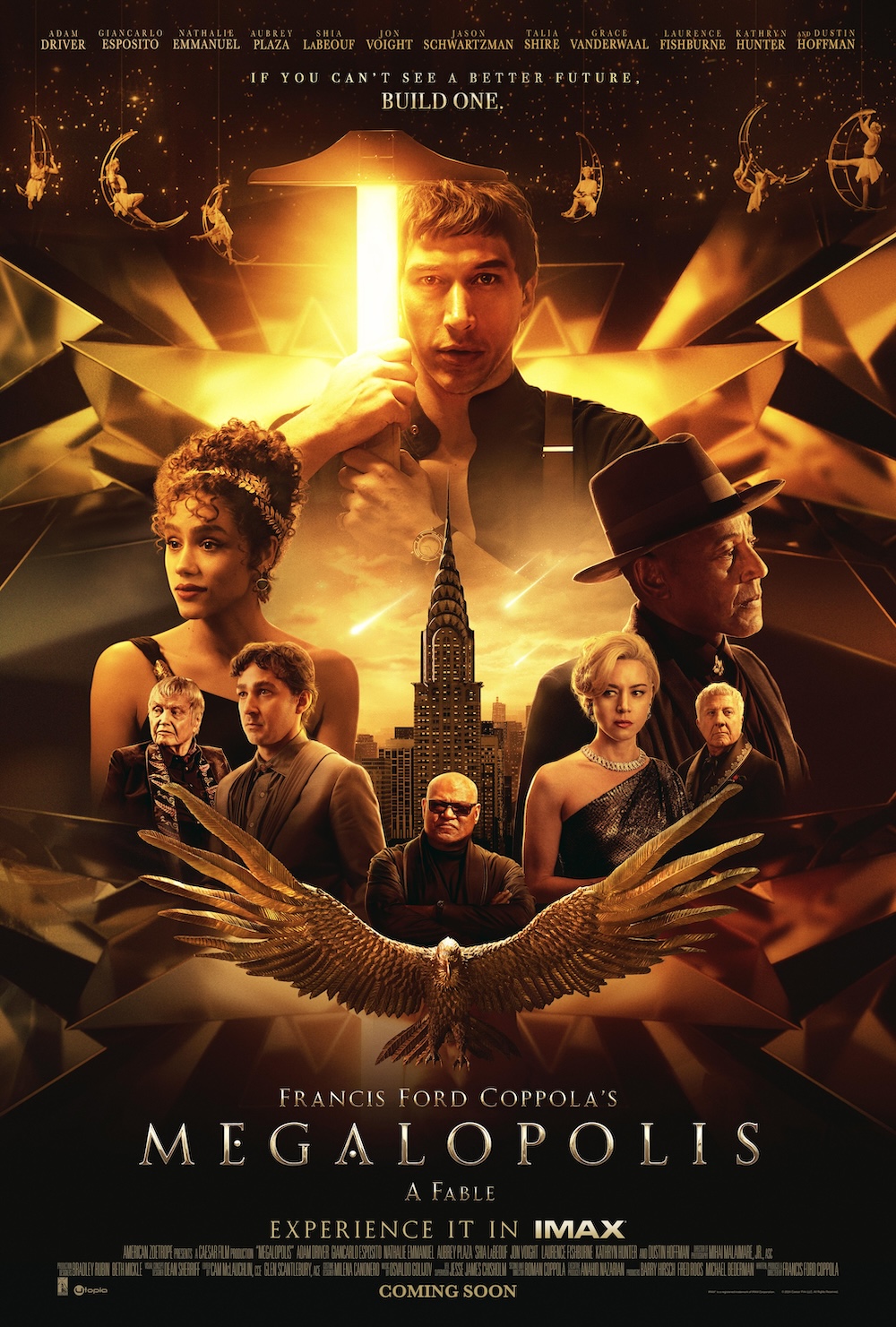
Avatar
Avatar (2009) written and directed by James Cameron
A 2023 MovieWeb article summarising why ‘Avatar is still the highest-grossing movie of all time’ points out that one of the film’s ‘most obvious [themes] is the relationship between humans and their environment’. ‘In Avatar,’ the article clarifies, ‘we see humans destroying the natural world and stripping it of its resources. Without any regard for the native population or the ecosystems in which they live, the humans in the film are motivated by greed and constant gratification.’
Humans are unquestionably the villains, so you would think few of us would want to sit through big-screen portrayals of our failings. However, as the article highlights: ‘In 2009, as well as today [subsequent to the release of sequel Avatar: The Way of Water (2022)], ecological degradation resonates with many viewers.’16
‘Many viewers’ is no exaggeration. Around 300 million of us saw Avatar in cinemas, and certainly more than a billion more at home. And despite being released during the disruptions of the Covid-19 pandemic, Avatar: The Way of Water, sits just behind Avatar as the #3 highest-grossing movie of all time.
This viewership illustrates both the phenomenal power of consummate storytelling and the universal resonance of airing our current existential crises through fiction.
Mass-market audiences were not put off by (Avatar hero) Jake Sully’s environmentalist and anti-imperialist awakening. We were inspired by it. We were moved by it. His journey, perhaps, reflecting our own innate curiosity, quest for truth, and need for a world of peace and stability.
Jake heard and echoed what we all need to hear and echo.
She [Neytiri] said all energy is only borrowed, and one day you have to give it back.
Jake Sully in Avatar (2009)
And Jake was told — as we all need to be told — that we need to wake up from our sheepish ‘insanity’.
It is decided. My daughter will teach you our ways. Learn well, ‘Jakesully’, and we will see if your insanity can be cured.
Mo’at in Avatar (2009)
To this day, I remain convinced that our ‘insanity can be cured’ because, as I explained on the Challenges page, we are not insane; we are distracted, confused, and stupefied.
And I have no doubt the vast audiences needed to mobilise Team Humanity exist, if we work together to craft and share engaging, compelling stories, as this manifesto invites us to do.
Megalopolis
Megalopolis (2024) written and directed by Francis Ford Coppola
Like Avatar, Megalopolis (which was a commercial failure despite its visual pageantry and all-star cast) is an epic science fiction drama whose themes and symbolism overtly call for social change and environmental conservation.
However, unlike Avatar, Megalopolis (an homage to the 1927 Fritz Lang film, Metropolis) is vastly more literal.
For example, Coppola’s hero — a visionary architect who wishes to sustainably transform the troubled metropolis of ‘New Rome’ — asks every one of us:
Is this society — is this way we’re living — the only one that’s available to us?
And pleads to every one of us:
Don’t let the now destroy the future.
The film’s final message is even more literal in the form of a provocative Coppola rewrite of the United States Pledge of Allegiance.
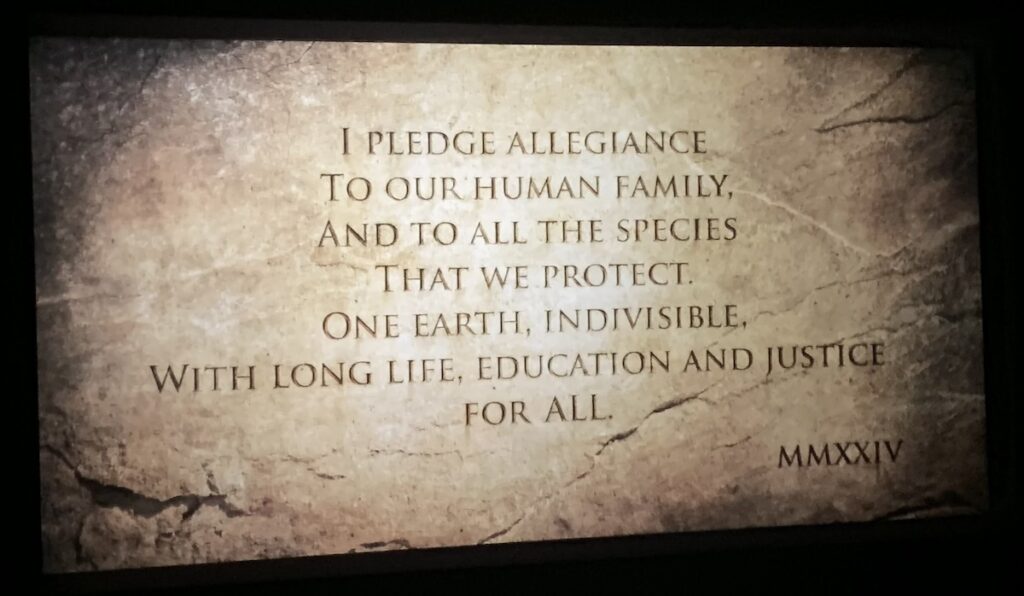
As film critic Chris Lambert eloquently summarises:
Coppola’s making a plea for our common humanity to win out over politics. To prioritize humanity over nation, race, ethnicity, religion, etc. We’re all part of the human family. Whatever superficial things would divide us pale to the nucleic bonds that unite us.
And we should consider ourselves custodians of this world. Not its owners. But guardians of life on Earth. If we come together this way, indivisible, then we will all enjoy health, knowledge, and fairness.
Wouldn’t that be a great place to live? There’s nothing saying we can’t have that. All it takes is a shift. In participation, in leadership, in priorities, in who we consider ‘one of us’.
Megalopolis is an old man’s plea to the better angels of our nature…Chris Lambert, film critic and consultant17
Cloud Atlas
Cloud Atlas (2004) by David Mitchell
In 2012, this complex, critically-acclaimed novel was made into a film that, like Megalopolis, failed to garner a large audience despite an all-star cast.
But a lack of coherency in the film is not a reflection of David Mitchell’s masterful writing. Through six nested, interlaced sub-stories that traverse time from the mid 1800s to the distant future, and back, Mitchell weaves a single cautionary tale of humanity’s predatory nature and transcendent promise and, thus, our choice of futures.
The passage below is the final entry of The Pacific Journal of Adam Ewing, which is the first of the six sub-stories. The passage quoted ends the novel.
For context, Adam Ewing is a young American lawyer who has witnessed the worst and best of human behaviour whilst working as a notary on a merchant vessel sailing from the Chatham Islands (near New Zealand) to San Francisco. His client, it is important to note, is his wealthy, slave-owning father-in-law.
In his final journal entry, Adam, a young father, philosophises about a world in which society appears to ‘believe humanity is a ladder of tribes, a colosseum of confrontation, exploitation & bestiality’, and within such a society it appears that ‘the moneyed … shall not fare so badly’.
Why undermine the dominance of our race, our gunships, our heritage & our legacy? … Why? Because of this: — one fine day, a purely predatory world shall consume itself. Yes, the devil shall take the hindmost until the foremost is the hindmost. In an individual, selfishness magnifies the soul; for the human species, selfishness is extinction.
Is this the entropy written within our nature?
If we believe that humanity may transcend tooth & claw, if we believe divers races & creeds can share this world [peaceably], if we believe leaders must be just, violence muzzled, power accountable & the riches of the Earth & its Oceans shared equitably, such a world will come to pass. I am not deceived. It is the hardest of worlds to make real. … [yet] A life spent shaping a world I want [my son] to inherit, not one I fear [he] shall inherit, this strikes me as a life worth the living. …
I hear my father in law’s response. “… He who would do battle with the many headed hydra of human nature must pay a world of pain & his family must pay it along with him! & only as you gasp your dying breath shall you understand, your life amounted to no more than one drop in a limitless ocean!”
Yet what is any ocean but a multitude of drops?
And, I ask, what is a movement but a multitude of voices?
What is stopping us from teaming up, right now, and getting on with shaping the world we want our children to inherit?
An equitable world is no longer ‘the hardest of worlds to make real’; it is the only world humanity can survive and flourish in, and we can and must realise such a world, together.
It is time we changed course, together.
Notifications
If you haven’t already, you can easily sign-up for announcements and publication notifications. Just click the Notify me button on the homepage.
Footnotes
- Kasper Benjamin Reimer Bjørkskov responding on LinkedIn (https://www.linkedin.com/feed/update/urn:li:activity:7345322704733925376/) to a question about what he would do to stop neoliberalism’s destructive privatisation cycle (July 1, 2025) ↩︎
- https://efi.ed.ac.uk/why-a-compassionate-economy-is-a-wellbeing-economy-and-a-why-a-wellbeing-economy-is-a-compassionate-one/ <Accessed January 15, 2025> ↩︎
- https://www.nytimes.com/2019/10/31/opinion/sunday/climate-change-evangelical-christian.html <Accessed September 27, 2023> ↩︎
- https://www.newcitizenproject.com/ <Accessed September 29, 2025> ↩︎
- https://www.moralambition.org/principles <Accessed September 29, 2025> ↩︎
- https://www.moralambition.org/about-us <Accessed September 29, 2025> ↩︎
- https://doughnuteconomics.org/about <Accessed September 29, 2025> ↩︎
- https://secure.avaaz.org/page/en/about/ <Accessed September 29, 2025> ↩︎
- https://weall.org/about-weall <Accessed March 4, 2025> ↩︎
- https://wikimediafoundation.org <Accessed March 4, 2025> ↩︎
- https://earth4all.life/ <Accessed January 6, 2025> ↩︎
- The authors of Earth for All: A Survival Guide for Humanity (2022) are Sandrine Dixson-Declève, Owen Gaffney, Jayati Ghosh, Jørgen Randers, Johan Rockström, and Per Espen Stoknes ↩︎
- https://capitalinstitute.org/ <accessed November 23, 2024> ↩︎
- Gary Stevenson speaking on the What does Elon Musk want? episode (January 19, 2025) of Gary’s Economics YouTube channel at https://www.youtube.com/watch?v=wPoXOwiEfrQ ↩︎
- Gary Stevenson speaking in an interview (March 3, 2024) on the Full Disclosure with James O’Brien YouTube channel at https://www.youtube.com/watch?v=46T6Nk2VOG8 ↩︎
- https://movieweb.com/avatar-highest-grossing-movie/ <Accessed April 3, 2025> ↩︎
- https://filmcolossus.com/megalopolis-explained-review-2024 <Accessed March 2, 2025> ↩︎
